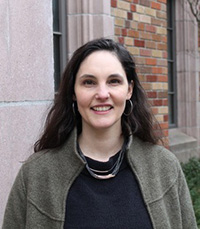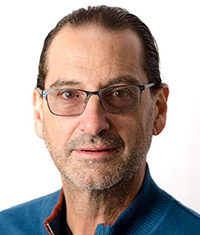Friday, June 2, 2023 – 2:30–3:15 p.m. CT
Saturday, June 3, 2023 – 11:30 a.m.–12:15 p.m. CT
Plenary Speakers:

Dr. Dharma Dailey, Research Associate, eScience Institute, University of Washington
Dharma Dailey is a Research Associate at the eScience Institute, working with Anissa Tanweer to understand how human-centered design can be incorporated into data-intensive research. She is the Human Centered Design Mentor for the eScience Institute’s Data Science for Social Good (DSSG) Program. She coaches DSSG teams to explore the social dimensions of their projects. She is also working with a coalition of Data for Good organizers to document better practices for running university-based DSSG programs.
Her PhD research focused on the use of social media during crises, with special attention to how information of value to crisis-affected communities is produced and diffused. That line of research has given her an appreciation for the value of integrating interpretivist approaches and human-centered methods into computational social science.

Dr. Richard Blumenthal, Department Chair and Professor, Computer and Cyber Sciences Department, Anderson College of Business and Computing, Regis University
Dr. Richard Blumenthal is Chair of the Computer and Cyber Sciences Department in Anderson College of Business and Computing. Prior to joining Regis University, Dr. Blumenthal worked in Artificial Intelligence (AI) research at AT&T Bell Laboratories and US West Advanced Technologies. He also developed workflow and e-commerce applications for various software startups. Dr. Blumenthal has a PhD from the University of Colorado in Boulder, Colorado, where he developed workflow technology for supporting unstructured activities.
Dr. Blumenthal is currently on the executive boards for the Association for Computing Machinery (ACM) Committee on Professional Ethics (COPE) and ACM Special Interest Group on Computers and Society (SIGCAS). He is also the Editor in Chief of ACM Computers and Society publication. His current research focuses on the AI discipline of Intelligent Tutoring Systems and Computing for the Social Good in Education (CSGEd). Rick is also on the Steering Committee for CS202X, which is developing the next release of international recommendations for the undergraduate computer science curriculum.
